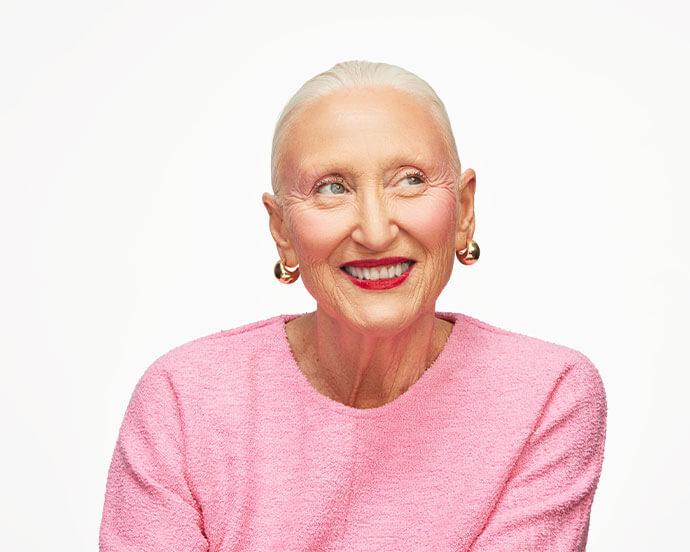Does Sunscreen Prevent Tanning? We Spoke With the Experts to Find Out



Dahvi Shira


It feels like we’d be doing you a disservice, dear reader, by not reminding you that whether you’re prepping for a vacay day in the sun, driving to and from work, or simply sitting near a window, sunscreen is always (literally always!) a must. Weather aside, there’s no stopping harmful UV rays from attacking the skin—meaning that even during those overcast moments,you never want to skip out on wearing your daily SPF. Stepping off our soapbox now…
Look, we get it. Because the purpose of sunscreen is to prevent sun damage, many sun-worshipers want to know: Does using sunscreen prevent tanning? We want you to be informed when it comes to your skin health, so keep reading to find out the best plan of action for your skin type.


It's about glam time you treated yourself.
MEET THE EXPERT
David Kim, MD, is a board-certified dermatologist and founder of LIGHTSAVER sunscreen.
Bree Lopez is the founder and owner of SAINT + SÓLITA self-tanner, and The Bronzed Bungalow tanning salon in Scottsdale, AZ.
Gabriella Vasile, MD, is board-certified dermatologist and skin cancer surgeon, who founded KANDEŌ SKIN.
What Is Tanning and Why Does It Happen?
We already know that color occurs when our skin is exposed to UV rays. Those rays produce melanin, aka the pigment that gives skin its color, as a way to protect itself, explains Bree Lopez, the founder and owner of SAINT + SÓLITA self-tanner and The Bronzed Bungalow tanning salon. “That glow we associate with a ‘tan’ is actually your body’s defense mechanism kicking in to guard against UV damage. It might look pretty, but it’s technically a response to stress on the skin. I always say that a real tan is your skin’s SOS, not a sign of health.”
The two types of melanin-producing rays are Ultraviolet A and B, but you likely know them as UVA and UVB. Whatever you call them, they are both causes for skin concern, but in different ways.
“UVA rays are the ones responsible for premature aging,” Lopez continues. “They penetrate deep into the dermis and break down collagen over time. UVB rays affect the skin’s surface and are what cause sunburn. Both can contribute to skin cancer, which is why sun protection isn’t just important, it’s absolutely essential. Every tan that comes from UV rays is actually evidence of skin damage.”
While most people tan for that fresh-from-vacation glow, some also use it to boost their mood. “Sun exposure does play a small role in supporting vitamin D production, which is important for things like immune health and mood regulation,” adds Lopez. “But the amount you realistically need is minimal. You only need 10 to 30 minutes a few times a week, depending on your skin tone and location. Anything beyond that, especially without SPF, starts to accelerate signs of aging and increases your risk of skin cancer. A little sunlight is great, baking in it is not.”
How Does Sunscreen Work?
“Any time spent in direct sunlight has been known to alter the skin’s DNA,” says board-certified dermatologist and skin cancer surgeon Gabriella Vasile, MD. “This increases the risk for skin abnormalities, including sunburns, sunspots and skin cancer. Different forms of UV protection work differently to prevent UV radiation from penetrating the skin’s barrier and causing damage to the skin’s DNA.”
All sunscreens are not created equally. Their SPF (aka sun protection factor) number measures how well that sunscreen protects the skin from harmful UV rays. Most experts recommend an SPF 30 minimum. But even once you break down the differences in UV rays, there’s still a debate between physical and chemical sunscreens.
“Chemical sunscreens block free radical formation from UV rays, which can lead to sunburn or sun damage,” Dr. Vasile shares. “Physical [or mineral] SPF acts as more of a barrier on the skin that reflects or scatters UV rays. Physical SPF consists of zinc oxide or titanium dioxide. It tends to be less irritating than chemical SPF, so it’s often better for sensitive skin.”
The two types of sunscreen also absorb differently into the skin. “Chemical-based sunscreen creates a ‘chemical reaction’ within the epidermis (top layer of the skin) that converts UV rays into heat as they dissipate,” Dr. Vasile adds. “Mineral sunscreens contain active ingredients like titanium and zinc oxide that sit on the surface of the skin and physically deflect UV rays, preventing them from entering the skin’s barrier.”
Does Sunscreen Prevent Tanning Completely?
At the end of the day, the only way to block the effects of sun damage (in terms of burning or tanning, for that matter) is to completely stay out of the sun.
“SPF reduces absorption of UVB radiation on the skin that triggers melanin production, the pigment responsible for tanning,” says Dr. Vasile. “It slows down tanning and minimizes DNA damage but does not entirely prevent it.” To entirely avoid tanning, try avoiding peak sun hours between 10 a.m. and 2 p.m., wearing long sleeves, hats with big brims, and sunglasses, and seeking shade when possible.
Dr. Vasile recommends using at least SPF 30 and reapplying every two hours or as indicated. She also recommends looking for a SPF that offers broad spectrum protection, meaning it blocks both UVB and UVA rays. Some formulations are also water resistant, which will maintain protection even if you sweat or are exposed to water.
We fans of the SUPERGOOP! Unseen Sunscreen SPF 40, which doubles as a makeup primer, and the FIRST AID BEAUTY Hydrating Sunscreen Milk with Colloidal Oatmeal Broad Spectrum SPF 45, which sinks in like a serum—no white cast, no greasiness—just soft, protected, and happy skin.
Expert Tips for Effective Sun Protection
Effective sun protection stems from a number of factors. If you’re planning to stay out in the sun during peak hours, it’s imperative you apply sunscreen correctly. Board-certified dermatologist David Kim, MD, says to apply 1/4 teaspoon (or two finger lengths) of SPF to the face and neck every morning. For the body, at least one shot glass of SPF (one ounce) is the goal.
“Make sure to reapply every two hours if you're going to be outdoors,” he says, adding, “Broad spectrum UV protection is essential to block both UVA and UVB rays, which are both responsible for sun damage, premature aging, and skin cancer. Avoid the sun during peak hours, but if you are out in the sun during that time, seek shade, wear a wide brim hat, and wear UPF clothing.”
Myths About Sunscreen and Tanning
Is it an overcast, gloomy day outside? Don’t be fooled. “Sunscreen should be a part of your daily skincare routine, regardless of the season and even on cloudy days, as UV rays can penetrate through the clouds,” Dr. Kim explains. “And while dark skin naturally has more melanin in it, which [naturally] provides some protection from the sun, there’s a myth that people with dark skin do not need to wear SPF. That’s absolutely not the case. UV rays can damage dark skin as well, and result in hyperpigmentation, sunburn, and melanoma.”
Something particularly interesting Dr. Kim points out is that higher SPF isn’t always better (emphasis on the “always”).
“Find the one that you like that you'll actually wear every day,” he advises. “Look for one with broad spectrum UV protection with SPF 30 and higher, which provides 97% of UVB protection (SPF 50 provides 98% UVB protection, so it's only 1% difference). Even if your sunscreen is waterproof, it still needs to be reapplied after swimming or if you’re sweating.”
How to Get That Glow Without the UV Damage
Let’s face it: Many of us aren’t ready to give up tanning. It can be an instant self-esteem boost, so who wants to tamper with that? But as we all know, tanning in beds or outdoors can lead to melanoma (skin cancer). So is there a happy medium? In fact, there is.
“The best way to add color without UV damage is with a sunless tanning product, like a self-tanner, a spray tan, or an airbrush tan,” Lopez says. “Sunless tanning products in any form use DHA (dihydroxyacetone), a plant-derived active that reacts with the top layer of your skin. It doesn’t penetrate the deeper layers, yet is still able to develop a natural looking bronze. It’s safe, non-invasive, and doesn’t involve any UV exposure. The beauty of sunless tanning is that you get that golden, even glow without risking your skin’s long term health.”
As for why society (we’re guilty, too!) is consumed with tanning? “Color can enhance the look of the skin,” Lopez says. “It creates a more even tone, a soft glow, and tends to bring out natural definition. Psychologically, studies show that we associate bronzed skin with health, vitality, and confidence. But it’s not about meeting a beauty standard, it’s about how you feel in your own skin. And when you feel good, you carry yourself differently. A tan doesn’t make you beautiful, but it can help you feel more radiant, and that’s powerful.”
Final Thoughts
It makes sense why people love to have a tan. It can affect mood and confidence, and offer a lit-from-within glow. But it doesn’t come without its faults—potentially life-altering ones. That said, not all hope is lost. Thanks to contemporary artificial tanning formulations, at-home self-tanners and in-salon sprays and airbrush tans can safely create that post-vacation effect. In today’s era, you can conceivably never leave the house and look fresh from Hawaiian vacation.
But of course, it’s key to stress the importance of sun protection when you do step outside, even if you aren’t necessarily laying out. Weather conditions aside, you always want to implement broad spectrum SPF into your routine.
Liked this post? Share!
Related Stories


Skin
How to Adjust Your Skincare Routine for Mature Skin in the Winter
Published on Dec 4, 2025 • 7 min read


Skin
Meet the Best Moisturizers for Winter, According to Dermatologists
Published on Dec 1, 2025 • 9 min read


Skin
What Is Inflammaging—and Why Everyone’s Talking About It
Published on Dec 1, 2025 • 8 min read


Skin
6 Skincare Trends to Have on Your Radar in 2026, According to Experts
Published on Dec 1, 2025 • 7 min read


Skin
We Grabbed Our Crystal Ball and Found These 6 Skincare Predictions for 2025
Published on Dec 10, 2024 • 7 min read


Skin
Simple Self-Care Tips That Actually Make a Difference
Published on Nov 13, 2025 • 12 min read


Skin
These 9 Face Scrubs Will Unlock Soft and Smooth Skin on Contact
Published on Nov 5, 2025 • 10 min read


Skin
10 Thanksgiving Foods That Will Have Your Skin Coming Back for Seconds
Published on Oct 15, 2025 • 7 min read


Beauty Picked Just for You
Get 5 products worth up to $70
Plus exclusive access to epic deals up to 80% off
Starting at just $14/month. Cancel anytime.